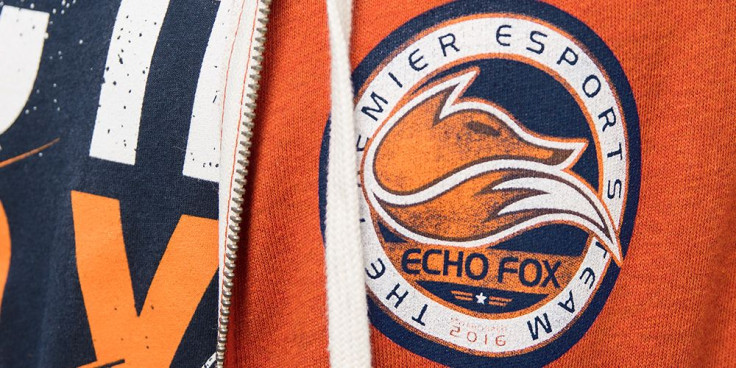The 2018 season of League Of Legends North American Championship Series will be the first to feature franchised teams so it’s important for every squad to build the best roster possible. Players with years of pro experience and veritable stage-play newbies are traded like Pokèmon cards in a sixth-grade lunch room. Collecting a group of pros with massive fan appeal, the ability to work together and the drive to win isn’t easy, especially when an entire esports ecosystem judges every move you make. Echo Fox, the esports dynasty started by basketball legend Rick Fox, is already looking strong weeks before the gauntlet starts.
“Our League team is a very talented group,” Jared Jeffries, President of Echo Fox, told Player.One. “Our coaching staff did a really good job at providing names and putting stuff together to hopefully execute on a talented roster.” With Heo “Huni” Seung-hoon in the top lane, Kim “Fenix” Jae-hun in mid, Joshua “Dardoch” Hartnett in the jungle and “Adrian” Ma and Johnny “Altec” Ru in the bot lane, EF has some of the most accomplished players to ever play on Summoner’s Rift.
To build this team, they had to start fresh. Former EF players like Froggen and Keith had to be let go, but that wasn’t what the coaches and general manager set out to do. “We felt like this was one of the few times we’ll have over the next couple of years to kind of reset our whole roster and with franchising, there was going to be a big shape up,” Jeffries said. “We felt like this was our opportunity to get in there and hopefully be able to sign some talented guys.”
The team started out with just one unlikely recruit: Dardoch. Known for his in-game problems, the Lee Sin aficionado bounced between four different LCS teams since 2016. His last big break on Team Liquid was cut short after a suspension for "behavioral problems and team dynamics issues," according to a TL blog post. Jeffries was concerned about Dardoch’s drama, but after seeing his dedication and the League pro friends he could bring along, he was swayed.
“For all his volatility and all his negativite rumors out around him, he does have a collection of friends in this space,” Jeffries said. “That’s what kind of kept me from being too scared of him, everything everyone told me was about his on-the-field demeanor.” Dardoch was actually the one to pull all the teammates together, contacting Altec, Fenix and Adrian, who then contacted his former teammate Huni. Using Dardoch as a springboard, the EF team was able to convince this roster playing together was the right move.
Reforming a player, regardless of the sport, is doable as long as the problems are on the field. The right team atmosphere, coaching staff and gameplan can go a long way, but Jeffries’ secret to keeping his team of all-stars in line is winning. “You go look at a team in any kind of sport, when you’re winning people can’t complain too much,” Jeffries said. “Even if you’re complaining, winning will solve a lot of problems.” He expects problems to arise if they go on a one or two game losing streak, but hopes that his coaching staff will be able to keep the team and its morale together.
Huni, the Korean superstar that moved from NA team Immortals to Korean SK Telecom, nearly won the 2017 League Of Legends World Championship. Huni is known as an aggressive hyper carry who loves to use unconventional choices. Every longtime LCS viewer remembers the embarrassing TSM vs. Immortals series where Huni fed miserably on Lucian. To leave the most decorated team in League Of Legends to come back to NA seems like an odd choice, but it makes sense if you look at North America as a region. There’s massive amounts of money flowing through an ever-growing talent pool featuring pros from all around the globe. Moving to Los Angeles to play at Riot Games’ Studio is one of the most lucrative moves a League Of Legends pro can make.
Jeffries believes that Huni left his position on SKT to come to NA for two things: his competitive drive and stability. “When guys see that they can sign a two or three-year-deal and let their roots sink into a certain org, play with the same guys for a couple of years and build something constructive, I think that’s attractive,” Jeffries said. “It’s tough to change teams every single year.”
Though we have yet to see any concrete results from this roster, they look extremely solid on paper. Echo Fox has always struggled to make a real name for themselves, stuck between eighth and tenth place since the team’s start at the 2016 NA LCS Spring Split. With a new roster of giants, this could finally be the change EF needs to be taken seriously as a competitive team.



















